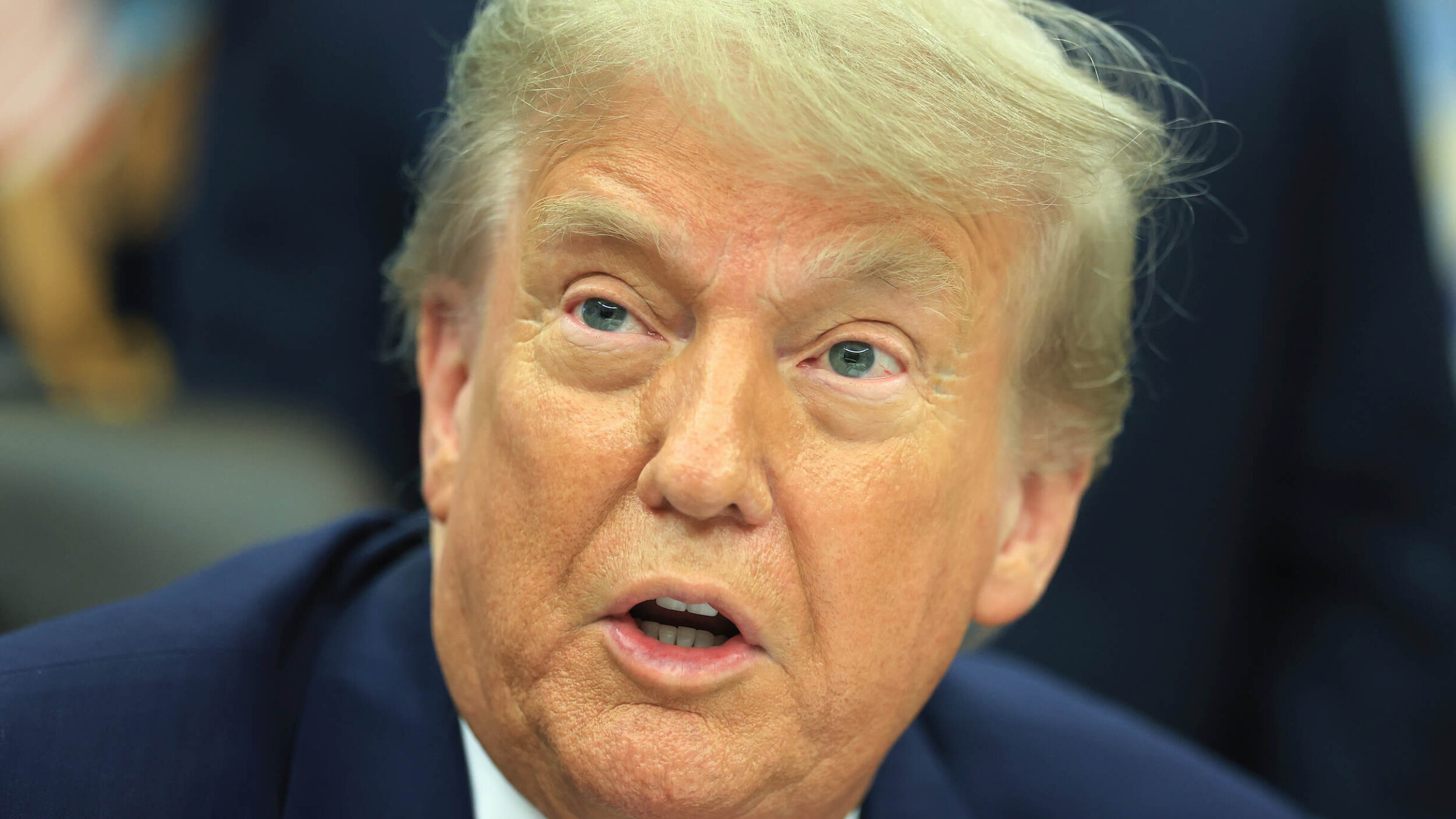White House condemns Israeli strike in Qatar, as sense mounts that Hamas leaders may have survived
US lawmakers and Jewish groups were split on the unprecedented strike

President Donald Trump delivers remarks in the Oval Office at the White House on June 27. Photo by Joe Raedle/Getty Images
(JTA) — The White House issued a sharp rebuke to Israel’s strike on Hamas leadership in Qatar on Tuesday while backing its goal, marking a split between U.S. and Israeli leadership over the unprecedented military action.
“Unilaterally bombing inside Qatar, a Sovereign Nation and close Ally of the United States, that is working very hard and bravely taking risks with us to broker Peace, does not advance Israel or America’s goals,” President Donald Trump wrote on Truth Social on Tuesday afternoon. “However, eliminating Hamas, who have profited off the misery of those living in Gaza, is a worthy goal.”
Six people were killed in the strike, but Hamas said its top leaders were not among them and Israeli officials reportedly were increasingly doubtful on Wednesday that the strike had been a success.
Israeli media reported that the military’s top brass had opposed the timing of the strike but were overruled by Prime Minister Benjamin Netanyahu.
Trump said he had been warned of the attack only as it was in progress and had instructed U.S. Middle East envoy Steve Witkoff to warn Qatar, but the warning came “too late to stop the attack.”
Following the strikes, Trump spoke with Qatari Prime Minister Sheikh Mohammed bin Abdulrahman Al-Thani and assured him that “such a thing will not happen again on their soil,” his office said.
White House press secretary Karoline Leavitt had sounded similar notes early in the day, amid reports that Trump had given Israel the green light for the strikes. Later, Netanyahu’s office said that it had acted alone and took “full responsibility” for the attack. Trump also spoke to Netanyahu on Tuesday.
Trump said he believed the attacks, which represented an unprecedented incursion into Qatar, could amount to an “opportunity for peace” between Israel and Hamas, even as Israel appears to have targeted Hamas’ top negotiators in a country that has both given them refuge and brokered ceasefire talks.
The White House’s comments represented a departure from the mainstream attitude among Republicans, who largely supported the strike. Among Democrats, most lawmakers expressed criticism, although Sen. John Fetterman, a staunch Israel supporter, posted a gif signaling glee and Sen. Richard Blumenthal said he viewed “anything done to support Hamas’ leadership” as a positive development.
Major Jewish organizations in the United States were split over the attack, largely but not only along partisan lines.
“Israel is taking justifiable action to ensure Hamas leaders pay a price for October 7th atrocities and their reign of terror,” said the Democratic Majority for Israel in a statement. “The international community must now use this moment to put more pressure on Hamas to finally accept the ceasefire and hostage deal.”
But Hadar Susskind, the president and CEO of the progressive Zionist group New Jewish Narrative, said the strikes were evidence of Netanyahu’s ambition to prolong the war in Gaza. They came as Israel ordered an evacuation of Gaza City, where a planned takeover has not drawn opposition from Trump.
“This strike shows yet again that Netanyahu wants this war to continue. He has no exit strategy because he doesn’t want an exit strategy. Why else would you blow up a meeting to review a ceasefire proposal?” Susskind said in a statement. “I’m terrified of the implications for Israel’s future – and for the lives that will be lost.”
The strikes also drew “deep concern” from the Hostages and Missing Families Forum, which wrote in a statement that the move could imperil the remaining hostages in Gaza.
“The families of the hostages are following the developments in Doha with deep concern and heavy anxiety. A grave fear now hangs over the price that the hostages may pay,” the forum said. “The chance of bringing them back now faces greater uncertainty than ever before.”














